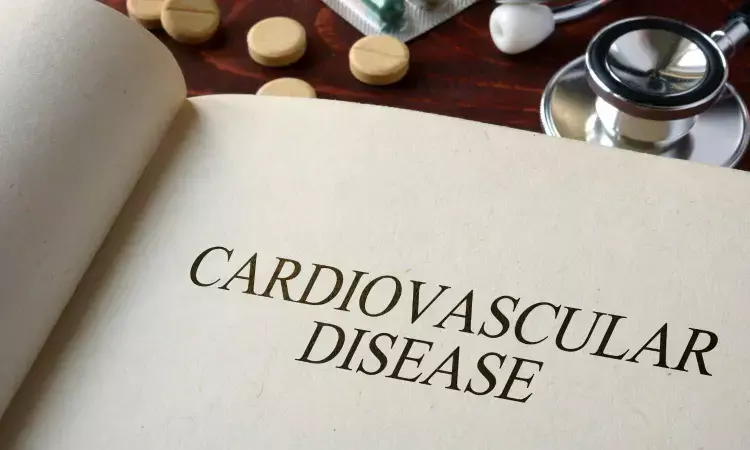- Home
- Medical news & Guidelines
- Anesthesiology
- Cardiology and CTVS
- Critical Care
- Dentistry
- Dermatology
- Diabetes and Endocrinology
- ENT
- Gastroenterology
- Medicine
- Nephrology
- Neurology
- Obstretics-Gynaecology
- Oncology
- Ophthalmology
- Orthopaedics
- Pediatrics-Neonatology
- Psychiatry
- Pulmonology
- Radiology
- Surgery
- Urology
- Laboratory Medicine
- Diet
- Nursing
- Paramedical
- Physiotherapy
- Health news
- Fact Check
- Bone Health Fact Check
- Brain Health Fact Check
- Cancer Related Fact Check
- Child Care Fact Check
- Dental and oral health fact check
- Diabetes and metabolic health fact check
- Diet and Nutrition Fact Check
- Eye and ENT Care Fact Check
- Fitness fact check
- Gut health fact check
- Heart health fact check
- Kidney health fact check
- Medical education fact check
- Men's health fact check
- Respiratory fact check
- Skin and hair care fact check
- Vaccine and Immunization fact check
- Women's health fact check
- AYUSH
- State News
- Andaman and Nicobar Islands
- Andhra Pradesh
- Arunachal Pradesh
- Assam
- Bihar
- Chandigarh
- Chattisgarh
- Dadra and Nagar Haveli
- Daman and Diu
- Delhi
- Goa
- Gujarat
- Haryana
- Himachal Pradesh
- Jammu & Kashmir
- Jharkhand
- Karnataka
- Kerala
- Ladakh
- Lakshadweep
- Madhya Pradesh
- Maharashtra
- Manipur
- Meghalaya
- Mizoram
- Nagaland
- Odisha
- Puducherry
- Punjab
- Rajasthan
- Sikkim
- Tamil Nadu
- Telangana
- Tripura
- Uttar Pradesh
- Uttrakhand
- West Bengal
- Medical Education
- Industry
Lower consumption of six healthy foods tied to increased risk of cardiovascular disease

Canada: A recent study has found lower consumption of healthy foods, including vegetables, fruits, nuts, legumes, whole-fat dairy products and fish, to a contributor to an increase in the risk of cardiovascular disease (CVD) globally, particularly in countries with lower income.
Combining these six foods is key to lowering the risk of CVD, including heart attacks and strokes. The study led by McMaster University and Hamilton Health Sciences researchers found that a healthy diet can be achieved in various ways, including moderate amounts of whole grains or unprocessed meats.
Previous and similar research has focused on Western countries and diets that combined harmful, ultra-processed foods with nutrient-dense foods. This research was global in scope and focused on foods commonly considered healthy.
The World Health Organization estimates nearly 18 million people died from CVD in 2019, representing 32% of all global deaths. Of these deaths, 85 per cent were due to heart attacks and strokes. PHRI researchers and their global collaborators analyzed data from multiple studies from 245,000 people in 80 countries. The results were published in the European Heart Journal on July 6.
Researchers derived a diet score from PHRI’s ongoing, large-scale global Prospective Urban and Rural Epidemiological (PURE) study, then replicated that in five independent studies to measure health outcomes in different world regions and in people with and without prior CVD.
“Previous diet scores – including the EAT-Lancet Planetary Diet and the tested the relationship of diet to CVD and death mainly in Western countries. The PURE Healthy Diet Score included a good representation of high, middle, and low-income countries,” said Salim Yusuf, PURE's senior author and principal investigator.
As well as being truly global, the PURE Healthy Diet Score focuses on exclusively protective or natural, foods.
“We were unique in that focus. The other diet scores combined foods considered to be harmful-such as processed and ultra-processed foods – with foods and nutrients believed to be protective of one’s health,” said first author Andrew Mente, PHRI scientist and assistant professor at McMaster’s Department of Health Research Methods, Evidence, and Impact.
“There is a recent increased focus on higher consumption of protective foods for disease prevention. Outside of larger amounts of fruits, vegetables, nuts and legumes, the researchers showed that moderation is key in consuming natural foods,” he said.
“Moderate amounts of fish and whole-fat dairy are associated with a lower risk of CVD and mortality. The same health outcomes can be achieved with moderate consumption of grains and meats as long as they are unrefined whole grains and unprocessed meats.”
The PURE Healthy Diet Score recommends an average daily intake of Fruits at two to three servings; vegetables at two to three servings; nuts at one serving; and dairy at two servings. The score also includes three to four weekly servings of legumes and two to three weekly servings of fish. Possible substitutes included whole grains at one serving daily and unprocessed red meat or poultry at one serving daily.
Dr Kamal Kant Kohli-MBBS, DTCD- a chest specialist with more than 30 years of practice and a flair for writing clinical articles, Dr Kamal Kant Kohli joined Medical Dialogues as a Chief Editor of Medical News. Besides writing articles, as an editor, he proofreads and verifies all the medical content published on Medical Dialogues including those coming from journals, studies,medical conferences,guidelines etc. Email: drkohli@medicaldialogues.in. Contact no. 011-43720751


